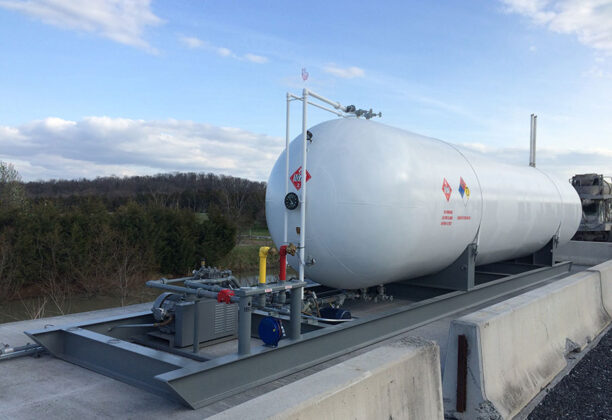Fueling Efficiency: Strengthening Propane Business Operations

Effective inventory management is essential for propane businesses to navigate the complexities of fluctuating demand and operational challenges. As the propane industry continues to evolve, companies must adopt strategies that allow them to stay competitive while maintaining efficient service levels. Here are some ways propane retailers and wholesalers can optimize their operations, ensuring they are prepared for both seasonal peaks and unexpected surges in demand.
Adapting to Demand Shifts
Propane demand is influenced by several factors, including weather patterns, seasonal trends, and emergency events such as storms or power outages. Being able to adapt to these shifts is key to maintaining a balance between having enough fuel to meet customer needs and avoiding excess inventory that ties up capital.
By analyzing historical data and incorporating modern forecasting tools, propane businesses can better predict demand spikes. For example, cold winters or the aftermath of a hurricane may cause a sharp increase in fuel usage. Leveraging technology to analyze these trends in real-time can help propane companies anticipate demand and respond accordingly, ensuring fuel availability without overextending resources.
Preparing for the Unexpected
While predictive analytics is a powerful tool, propane companies must also be prepared for the unexpected. Emergencies like severe weather events or supply chain disruptions can cause sudden increases in demand. In these situations, maintaining a reserve stock of propane ensures that companies can still deliver to their customers even when demand exceeds normal levels.
By establishing clear guidelines for how much buffer stock is necessary and regularly reviewing this amount based on changing trends, businesses can navigate unforeseen events more effectively. Strategic location of these reserves also ensures that propane deliveries can be made promptly to high-demand areas, minimizing delays during critical times.
Maximizing Operational Efficiency
An essential component of managing fuel inventory is the ability to deliver propane in the most efficient way possible. Optimizing delivery routes and maintaining fleet performance are key to meeting customer demand while minimizing operational costs. Utilizing advanced route planning technology can help drivers find the fastest, most efficient paths, reducing delivery times and fuel expenses.
In addition, keeping vehicles in good working order is vital for ensuring reliable service. Regular maintenance of delivery trucks and equipment will prevent costly breakdowns that could slow down operations, especially during busy seasons when every delivery counts. Combining these logistical improvements with proactive delivery scheduling can increase fleet productivity and ensure the timely distribution of propane.
Enhancing Real-Time Inventory Insights
One of the most effective ways to manage inventory is by having real-time visibility into stock levels. Traditional methods of tracking fuel levels can be slow and prone to errors, leading to missed opportunities or overstocking. Adopting automated inventory tracking systems that integrate with customer orders allows businesses to track usage and adjust stock in real-time.
These systems not only provide businesses with up-to-date information on their fuel supply but also help them better respond to fluctuating demand. Propane companies can reduce waste, increase delivery accuracy, and ensure that they’re always prepared for the next delivery cycle, whether it’s during a seasonal peak or in response to an unexpected event.
Building Resilience Through Technology
As the propane industry faces increasing pressure from external challenges like weather events and fluctuating fuel prices, technology will continue to play a significant role in operational efficiency. By leveraging cloud-based inventory management systems and predictive analytics, propane businesses can gain valuable insights into their operations, enabling them to respond quickly to changes in demand and optimize their fuel management.
These techniques not only streamline inventory management but also provide a level of flexibility and agility that businesses need to stay competitive. In an increasingly unpredictable market, technology offers the means to make informed decisions and prepare for future challenges.
















